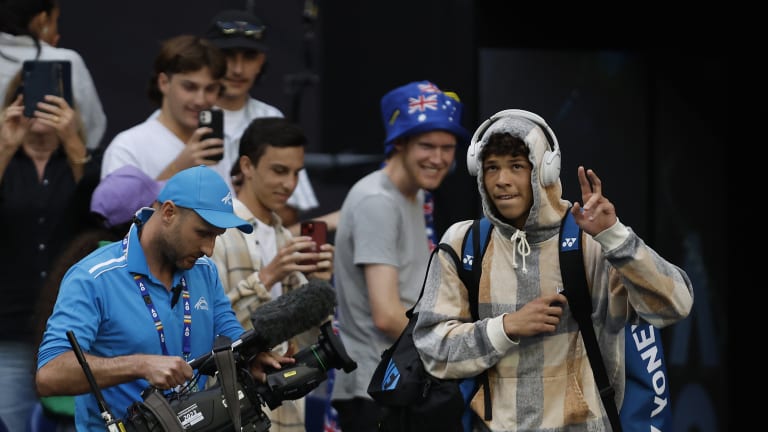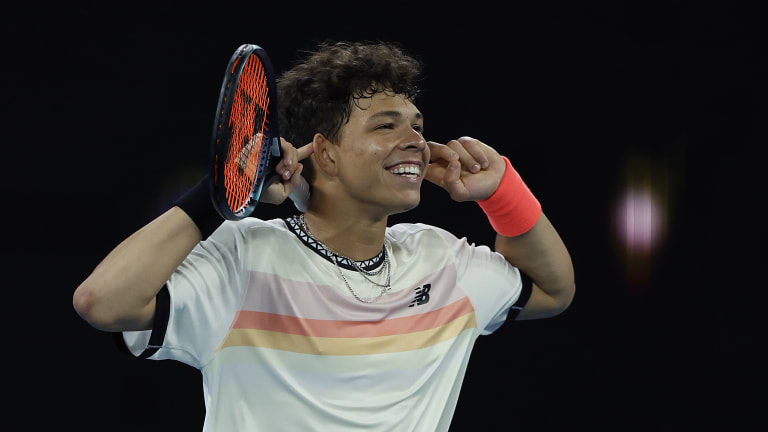Australian Open
Whether the crowds are for him or against him, Ben Shelton is enjoying the ride into the big time
By Jan 21, 2023Australian Open
Australia at Last: Reflections on a first trip to the AO
By Jan 29, 2025Australian Open
Alexander Zverev must elevate his game when it most counts—and keep it there
By Jan 27, 2025Australian Open
Jannik Sinner draws Novak Djokovic comparisons from Alexander Zverev after Australian Open final
By Jan 26, 2025Australian Open
Alexander Zverev left to say "I'm just not good enough" as Jannik Sinner retains Australian Open title
By Jan 26, 2025Australian Open
Jannik Sinner is now 3-0 in Grand Slam finals after winning second Australian Open title
By Jan 26, 2025Australian Open
Taylor Townsend and Katerina Siniakova win second women's doubles major together at the Australian Open
By Jan 26, 2025Australian Open
Madison Keys wins her first Grand Slam title at Australian Open by caring a little bit less
By Jan 25, 2025Australian Open
Henry Patten, Harri Heliovaara shrug off contentious first set to win Australian Open doubles title
By Jan 25, 2025Australian Open
Aryna Sabalenka takes a rare loss in Australian Open slugfest
By Jan 25, 2025Australian Open
Whether the crowds are for him or against him, Ben Shelton is enjoying the ride into the big time
On his don’t-sweat-the-mistakes attack, and his dominant third-round win over Australian Alexei Popyrin.
Published Jan 21, 2023
Advertising
Advertising

“I find it easy to play free when the crowd is coming at you and being aggressive. I enjoy that hostile atmosphere.”
© Getty Images
Advertising
Advertising

Shelton is one of four American men in the round of 16, and at 20, he's the youngest.
© darrian traynor